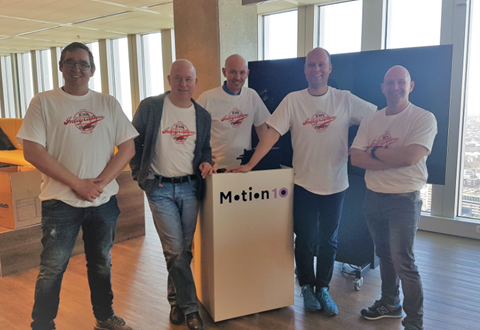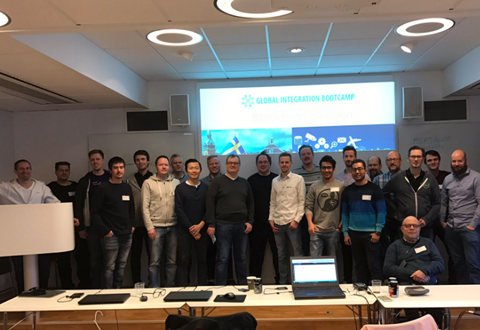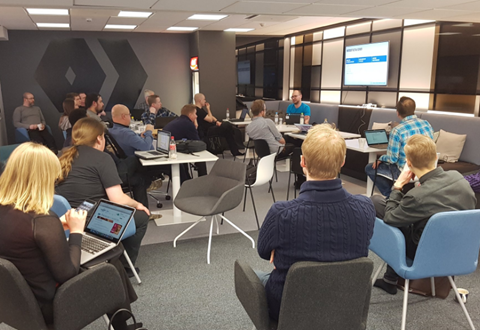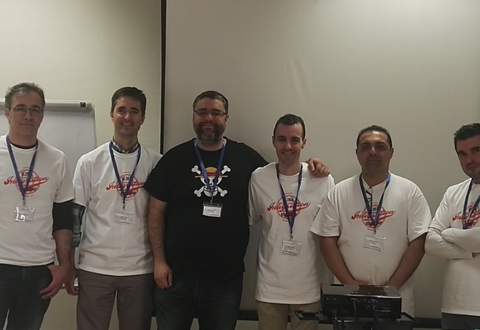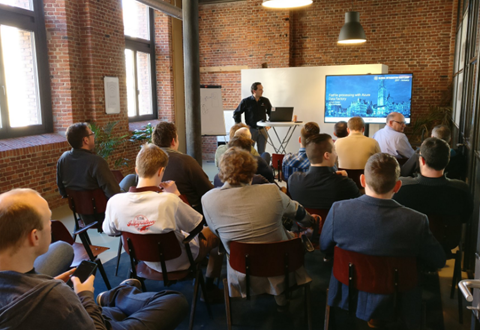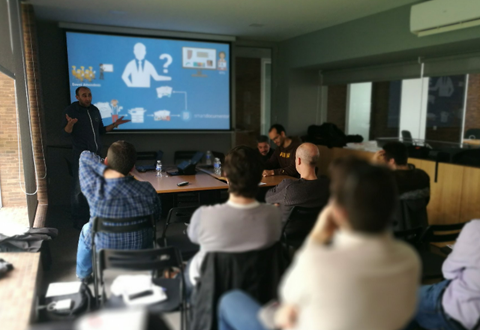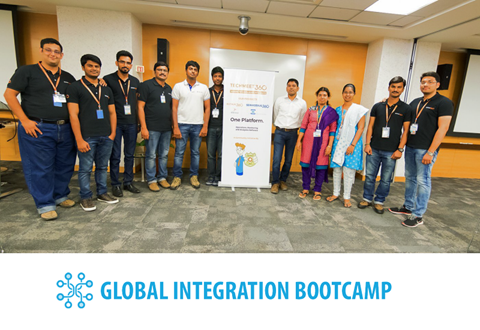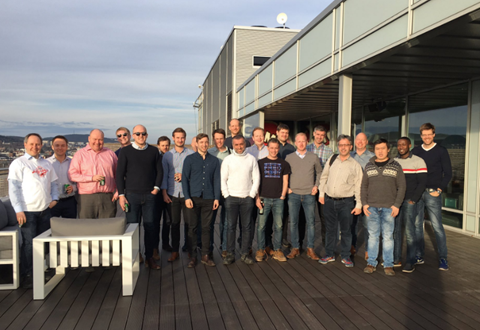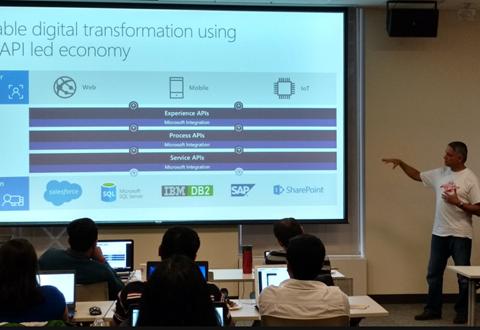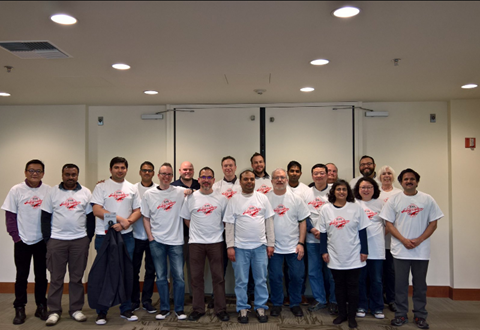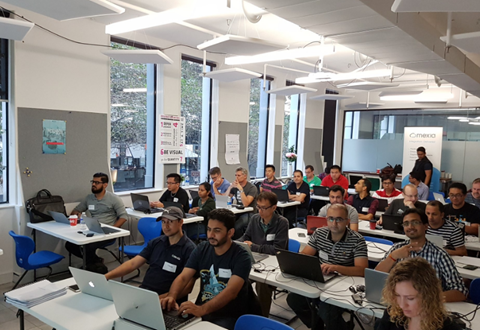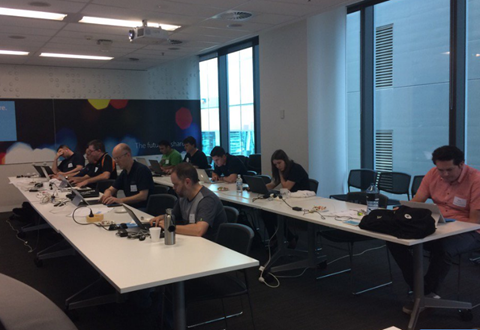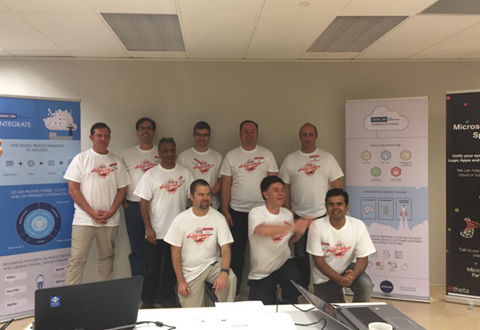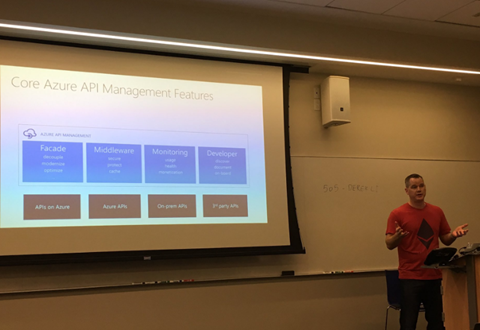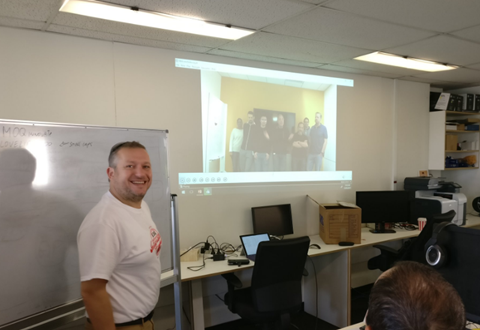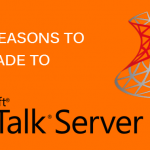
by Saravana Kumar | Mar 28, 2017 | BizTalk Community Blogs via Syndication
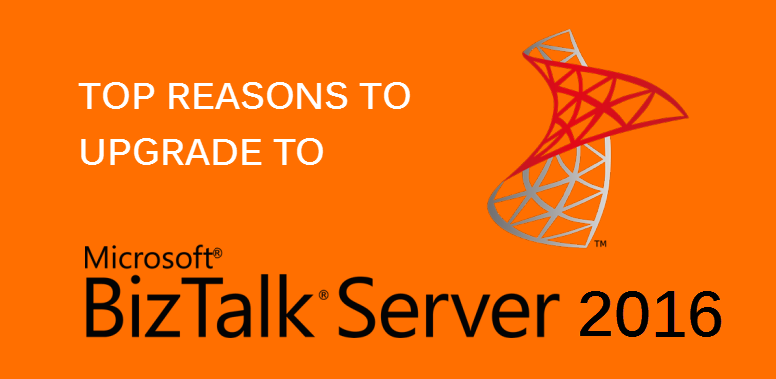
BizTalk Server 2016 was released recently and one of the biggest questions a lot of existing BizTalk Server customers have is whether to upgrade/migrate to 2016 or stay in the current version. The answer to this question will depend on various factors, let’s try to understand the scenarios that can potentially require or force you to do the upgrade.
Before going into the details let’s take a look at 2 important pieces of information, the history of last few versions of BizTalk Server and what’s new in BizTalk Server 2016. Because these two factors are very important before we make the decision of whether to upgrade to latest version
BizTalk Server history
BizTalk Server is one of the most matured Enterprise Integration Product in the market with over 16 years continuous development and innovation.
- BizTalk Server 2000
- BizTalk Server 2002
- BizTalk Server 2004
- BizTalk Server 2006
- BizTalk Server 2006 R2
- BizTalk Server 2009
- BizTalk Server 2010
- BizTalk Server 2013
- BizTalk Server 2013 R2
- BizTalk Server 2016
What’s new in BizTalk Server 2016
At a very high level, these are the key features that are added in this release.
- Support for Windows Server 2016, SQL Server 2016, Visual Studio 2015
- Support for Host Integration Server 2016
- Support for SQL Server AlwaysOn
- Support for hosting production workloads in Azure IaaS VM’s
- SHA2 Native Support
- New Adapters (Azure Logic Apps)
- Adapter Improvements (SAP Connector, File, FTP, SFTP, Ordered Delivery for Dynamic Send Port)
- Shared Access Signature support for WCF adapters
- Import/Exports – Parties, Tracking Settings
- Simultaneous Multiple artifacts configuration in BizTalk Admin Console
For the complete information please refer to Microsoft release notes. Technically you can migrate to BizTalk Server 2016 seamlessly if you are in the last 2 versions of BizTalk (2013 or 2013 R2), but the decision to upgrade is not always made purely based on technical reasons. Let’s see some scenarios.
Scenario #1: Upgrade based on your platform requirements
This scenario is something you cannot avoid and will force you to upgrade to BizTalk Server 2016. Every enterprise will have an internal platform upgrade story both for Windows Server and SQL Server. The organisation may be currently running on Windows Server 2012 and every 5 years once they might have a platform upgrade across the company. When such things happen they will create a dependency matrix and if they identify any product that can be moved to latest platform, then they will ask the relevant teams to start the initiative. If such scenario happens then you’ll be forced to migrate to BizTalk Server 2016. A similar story can happen for SQL server upgrade across the company.
Scenario #2: Upgrade based on your current version
Based on the current version of BizTalk server you are running in your organisation, you may be forced or it may be a good idea to upgrade to BizTalk Server 2016. The below table gives the BizTalk Server product support lifecycle information with dates for the end of both mainstream and extended support. As you can see 2006, 2006 R2, 2009 and 2010 versions are already out of mainstream support
| BizTalk Version |
Support End (Mainstream) |
Support End (Extended) |
| BizTalk Server 2006 |
7/12/2011 |
7/12/2016 |
| BizTalk Server 2006 R2 |
7/12/2011 |
7/12/2016 |
| BizTalk Server 2009 |
7/08/2014 |
7/09/2019 |
| BizTalk Server 2010 |
1/12/2016 |
1/12/2021 |
| BizTalk Server 2013 |
7/10/2018 |
7/11/2023 |
| BizTalk Server 2013 R2 |
7/10/2018 |
7/11/2023 |
| BizTalk Server 2016 |
1/11/2022 |
1/11/2027 |
There are lot of disadvantages being in extended support,
- Non-Security hotfix support will require extended hotfix agreement, purchased within 90 days of mainstream support ending
- You incident support will be chargeable
- You cannot make warranty claims
- You cannot request design changes and feature requests
You probably do not want to run your business on limited support, so it’s better to upgrade if your current version is already in extended support or your mainstream support is coming.
Scenario #3: Upgrade based on new features
There may be some features released in BizTalk Server 2016 that might demand an upgrade. Example: SQL AlwaysOn, traditionally companies struggle to set up log shipping for DR and in many instances, they never had any DR setup that could be resolved by using SQL Always on. In a similar way, there may be other features like SAP connector, Ordered Delivery on dynamic send ports etc can all be interesting for certain scenarios.
Scenario #4: Upgrade based on your current projects
Most of the time the cost of migrating from one version of BizTalk server to another is not the BizTalk server software cost, because typically you’ll be either covered with annual support assurance (SA) or you’ll have enterprise agreement package (EAP), which will allow you to upgrade and do a true-up cost at end of the period.
The biggest cost factor is your functional testing efforts. Even though Microsoft (or any software vendor for that matter) will claim the upgrade will be seamless and will not affect anything. Chances are, something will get broken. If you look at the stack, you are upgrading a lot of things Windows, SQL, .NET, BizTalk etc. at one go and you need to be super careful.
The best situation for you to plan for your upgrade and reduce the cost is to do it along with your project plans. If you have a big release coming, and if you are already planning for a lot of functional testing, use that as an opportunity to migrate to the new version.
If somebody claims their software/tool will magically help you on the upgrade process be cautious. There is no magic bullet here, no one will understand the complexities of the legacy systems you are connecting and their underlying limitations. Only your QA team can warrant that after verifying their test cases.
Scenario #5: What if we are in the process of buying BizTalk Server
In this case, it’s kind of a no-brainer decision, you just buy the latest version of the product i.e BizTalk Server 2016. Having said that we have seen companies using the policy of always using “Latest Version – 1” formula. They don’t want to risk with some unknown potential problems and wanted to stay with the version that’s in the market for a while. If you are in that situation, it’s perfectly fine to go with BizTalk Server 2013 R2. But keep in mind BizTalk Server 2013 R2 will not run (or supported) in Windows Server 2016 and SQL Server 2016.
Please leave your comments if you have any other reasons.
The post Top reasons to upgrade to BizTalk Server 2016 appeared first on BizTalk360.
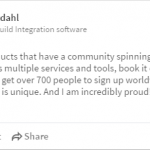
by Saravana Kumar | Mar 26, 2017 | BizTalk Community Blogs via Syndication
The Microsoft BizTalk Server community is one of the long-standing powerful technical communities in the world I’ve seen in an enterprise segment. For many years community members across the world have done numerous events like user group meetings, community gatherings, innovations days etc. This following LinkedIn statement by Tord Glad Nordahl who works as a Program Manager in BizTalk Server team at Microsoft is a testament to the above statement.
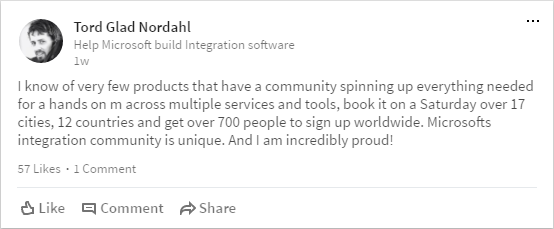
What is Global Integration Boot camp?
The idea of Global Integration Boot camp is pretty simple, uniting all the community members in the Microsoft Integration space across the world and conduct a one-day event on the same day.
Beginning of this year a group of people in the community along with Microsoft decided to go ahead with the plan. Hence the birth of Global Integration Boot camp (GIB).
The date was fixed to March 25th 2017 for the first GIB and a Slack group was set up for the core organizers to communicate. As you can see from the below screen shot from Slack there are 61 members in the group who worked behind the scene to make this event a great success.
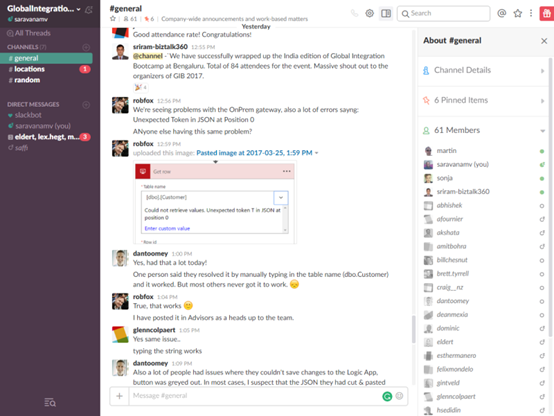
Out of that 61 people, there are few outstanding contributors (core organising team) whom I wanted to personally acknowledge and thank for their relentless work behind the scene to make this event a grand success Eldert Grootenboer, Sven Van den brande, Rob Fox, Bill Chesnut, Martin Abbott, Dan Toomey, Glenn Colpaert, Lex Hegt, Steef-Jan Wiggers, Wagner Silveira, and all those people who contributed to GIB.
The format of the event is to have 3 to 4 sessions followed by a lab exercise in each location. The session and labs are focused on the following technology stack (all related to Integration)
BizTalk 2016 : BizTalk Server 2016, what’s new, and using the new Logic Apps adapter
Logic Apps : Creating Logic Apps using commonly-used connectors
Service Bus : Build reliable and scalable cloud messaging and hybrid integration solutions
Enterprise Integration Pack : Using the Enterprise Integration Pack (EIP) with Logic Apps
API Management : How does API management help you organize and secure your APIs
On-Premise Gateway : Connecting to on-prem resources using the On-Premise Gateway
Hybrid Integration : Hybrid integrations using BizTalk Server and Logic Apps
Microsoft Flow : Learn to compose flows with Microsoft Flow
Welcome message from Microsoft Product Group
The Microsoft Product Group from Seattle Jim Harrer, Jon Fancey, Tord Glad Nordahl, Kevin Lam, Jeff Hollan, Darek Li has put together this short intro video to GIB
What are the challenges?
Anything you do for the first time is going to raise a great deal of scepticism whether something like this will work? The organisers did a great job of convincing people across different countries, the list started off some 5-6 countries initially and gradually expanded as the event got the moments. For example a couple of locations were added just 2 or 3 weeks before the event date.
The second biggest challenge was securing venues at different places. In majority of the countries the event was conducted at Microsoft venues and in some places the partner organisations provided the space. It’s not just the space, for a whole day event like this there are a lot of logistics need to be addressed like food, drinks, and in some places security staff etc.
The organizers did an excellent job in addressing these challenges and moving forward seamlessly.
Locations, Organisers, Speakers and Sponsors
Following table summarises all the global locations in total 12 countries and 16 locations. Microsoft played an active role across all the locations in helping local sponsors, organisers to make this event a grand success.
| Country |
Location |
Organiser |
Speakers |
Sponsors |
| Australia |
Brisbane |
|
- Dan Toomey
- Ashley Knowles
- Lee Simpson
|
|
| Australia |
Melbourne |
|
- Bill Chesnut
- Nathan Fernandez
- Sonja Bijou
- Paco de la Cruz
- Tanvir Chowdhury
|
|
| Australia |
Sydney |
|
- Rene Brauwers
- Mick Badran
|
|
| Belgium |
Antwerp |
- Sven Van den brande
- Glenn Colpaert
|
- Toon Vanhoutte
- Steven Van Eycken
- Glenn Colpaert
- Jochen Toelen
|
|
| Finland |
Helsinki |
|
- Karl Ots
- Sami Ovaska
- Teemu Tapanila
|
|
| India |
Bengaluru |
- Arunkumar Kumaresan
- Sriram Hariharan
|
- Deepak Rajendran
- Tulika Chaudharie
- Harikharan Krishnaraju
- Shailesh Agre
- Shree Divya
- Sunny Sharma
- Lohith G Nagaraj
- Sajith C P
- Roy Joseph
- Rekha Kodali
|
|
| United Kingdom |
London |
|
- Nino Crudele
- Ashwin Prabhu
- Michael Stephenson
- Lex Hegt
- Saffi Ali
|
|
| New Zealand |
Auckland |
- Wagner Silveira
- Mark Brimble
|
- Wagner Silveira
- Nikolai Blackie
- James Corbould
- Morten Velling
- Abhishek Kumar
|
|
| Netherlands |
Rotterdam |
- Microsoft Integration User Group
|
- Tomasso Groenendijk
- Rob Fox
- Eldert Grootenboer
- Steef-Jan Wiggers
|
|
| Norway |
Oslo |
|
|
|
| Portugal |
Porto |
|
- Sandro Pereira
- Ricardo Torre
- José António Silva
- Pedro Sousa
- João Ferreira
|
|
| Spain |
Madrid |
|
- Mariano Robles
- Carlos Sacristan
- Felix Mondelo
- Felipe Senso
- Ivan Canizares
- Francisco Nieto
|
|
| Sweden |
Stockholm |
|
- Johan Hedberg
- Mattias Lögdberg
- Mikael Sand
- Samuel Kastberg
- Alan Smith
- Mikael Håkansson
|
- BizTalk User Group Sweden
|
| United States |
Chicago |
|
|
|
| United States |
New York |
|
- Mandi Ohlinger
- Howard Edidin
- Stephen Thomas
- Kent Weare
|
|
| United States |
Seattle |
|
- Richard Seroter
- Kevin Lam
- Nick Hauenstein
- Jeff Hollan
|
|
Interesting Pictures from the event
These pictures shows the depth of the event across various locations 12 countries, 16 locations, 55 speakers and 650+ attendees.
Missed out on GIB? then don’t miss INTEGRATE 2017
If you have missed out all the fun of GIB 2017, then don’t miss out attending INTEGRATE 2017. It’s bigger in scale, all the Microsoft Product Group team and majority of the speakers who participated at GIB 2017 will be present in a single location in London. The registrations are now open for INTEGRATE 2017 and filling super fast.
The post Global Integration Boot camp – a great success story appeared first on BizTalk360.

by Saravana Kumar | Feb 15, 2017 | BizTalk Community Blogs via Syndication
We are very happy to announce the immediate availability of BizTalk360 version 8.3. This is our 48th product release since May 2011. In version 8.3 release, we focused on bringing the following 6 features –
- Azure Logic Apps Management
- Webhooks Notification Channel
- ESB Portal Dashboard
- EDI Reporting Manager
- EDI Reporting Dashboard
- EDI Functional Acknowledgment Viewer
We have put together a release page showing more details about each feature, links to blog articles and screen shots. You can take a look here : https://www.biztalk360.com/biztalk360-version-8-3-features/
Public Webinars
We are conducting two public webinars on 28th Feb to go through all the features in version 8.3. You can register via the links below.
BizTalk360 version 8.3 Public Webinar (28th Feb – Europe)
https://attendee.gotowebinar.com/register/2736095484018319363
BizTalk360 version 8.3 Public Webinar (28th Feb – US)
https://attendee.gotowebinar.com/register/1090766493005002755
You can read a quick summary of each feature below.
Azure Logic Apps Operations
You can now manage your Azure Logic Apps right inside BizTalk360 user interface. This eliminates the need to log in to the Azure Portal to perform basic operations on the Logic Apps. Users can perform operations such as Enable, Disable, Run Trigger and Delete on the Logic App. In addition to performing the basic operations, users can view the trigger history and run history information in a nice graphical and grid view. We are making further investments in Azure Logic Apps management and monitoring, to give customers a single management console for both BizTalk and the Cloud. Read More.
Webhook Notification Channel
The new webhook notification channel allows you to send structure alert notification (JSON format) to any REST endpoints whenever there is a monitoring violation. This opens up interesting scenarios like calling an Azure Logic App and doing further processing. Read More.
ESB Dashboard
The new ESB dashboard allows you to aggregate different ESB reports into a single graphical dashboard that will help business users and support people to visualize the data in a better way. BizTalk360 has 13 different widgets that will help users to understand the ESB integrations better and help to analyze data to improve the performance. The widgets are categorized as –
- Fault code widgets (based on application, service or error type)
- Fault code over time widgets
- Itinerary Widgets
Read More
EDI Reporting Manager
The EDI reporting manager allows your to turn on/turn off reporting for each agreement in a single click. Performing this task in the BizTalk Admin Console is a tedious task especially when there are many parties and agreements. Similarly, administrators can perform bulk enable/disable operations on the NRR configuration. Administrators can add the Host Partner information required to configure the host party for NRR configurations.
EDI Reporting Dashboard
In version 8.3, out of the box, we are providing a rich EDI dashboard to aggregate different EDI transactions that help business users and support persons to visualize the data in a better way. You can also create your own EDI Reporting dashboard with three different widget categories we ship –
- EDI Interchange Aggregation widgets
- EDI Transaction Set aggregation widgets
- AS2 messaging aggregation reports
Read More
BizTalk360 has a few aggregations (as widgets) that are not available in BizTalk Admin Console reports such as Interchange Count by Agreement Name (Top 10), Interchange count by Partner Name (Top 10), Transaction count by ACK Status (Filtered by partner id), AS2 messaging aggregation reports.
EDI Functional Acknowledgement
In a standard B2B scenario, whenever a message (with multiple functional groups) is sent from source to destination, it is quite obvious that the source will expect a technical acknowledgment (TA1) and functional acknowledgment (997) for each functional group. What if the technical acknowledgment is received but not the functional acknowledgment? Taking a look at the status of functional acknowledgment is not an easy job with BizTalk Admin Console. With BizTalk360, administrators can easily view the status of functional acknowledgments within the grid and also set up data monitoring alerts whenever negative functional acknowledgments are received. Read More
Version 8.3 Launch page
https://www.biztalk360.com/biztalk360-version-8-3-features/
Version 8.3 Release Notes
http://assist.biztalk360.com/support/solutions/articles/1000244514
Author: Saravana Kumar
Saravana Kumar is the Founder and CTO of BizTalk360, an enterprise software that acts as an all-in-one solution for better administration, operation, support and monitoring of Microsoft BizTalk Server environments. View all posts by Saravana Kumar





